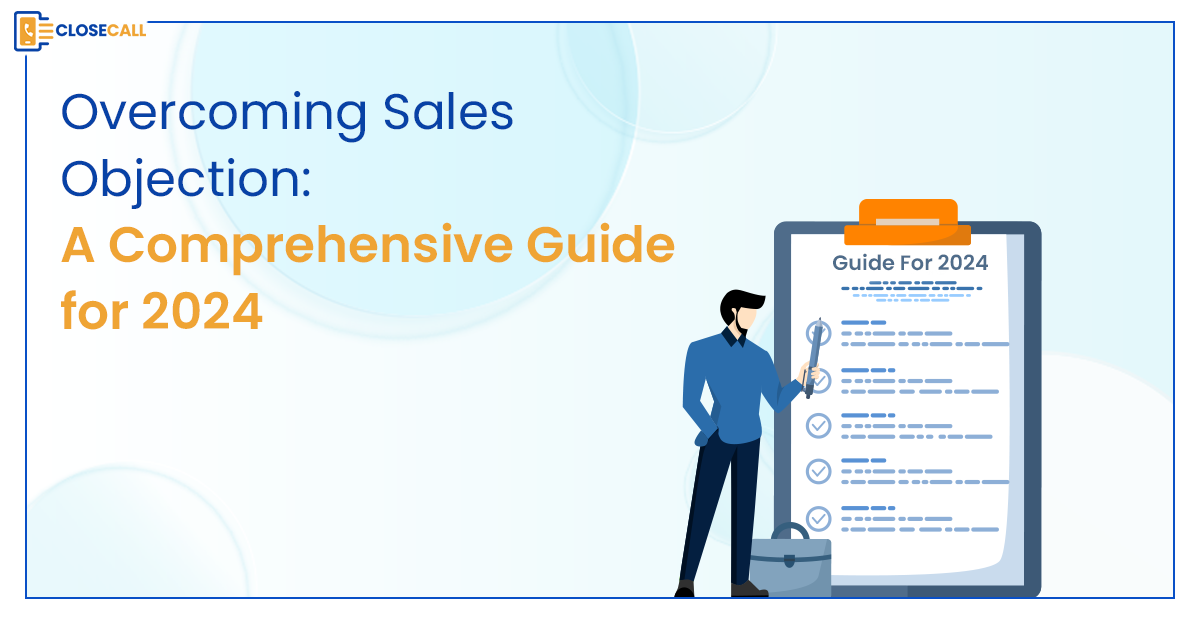Selling an insurance policy to a customer requires skills and relevant knowledge. Want to close more policies every month? But tired of using the old strategies to sell your policies? There are lots of insurance policies on the market and tonnes of agents who work in the field to get more customers and clients. To make anything worthwhile, it is very crucial for you to have a clear strategy for it. For people who have plenty of experience in sales, this is not just a road map for them. It needs some lucrative ways to impress the customer. Also, we can say that selling an insurance policy is a career opportunity that promises you all the benefits and liabilities.
As per the research, currently, policyholders 65 years of age and older possess 40% of the assets under management (AUM) of insurers, amounting to USD 7.8 trillion for the top 40 life insurers worldwide. These assets are scheduled to be distributed to recipients by 2040, with 71% going to those 50 years of age and older. Now that you understand the scenario, to make your journey easy, in this post, we have mentioned a strategy guide for you that will help you sell an insurance policy.
Read it out:
What is an Insurance Policy?
Before knowing anything about the strategies, you must know about insurance. Yeah! That is true; be you already if not. We must tell you that an insurance policy is a legal agreement between a policyholder and an insurance company that provides the policyholder with financial protection or compensation against losses. In order to reduce the insured’s payment costs, the firm combines the risks of its clients. Most individuals have some kind of insurance, whether it is for their life, their property, their automobile, or their health.
Insurance policy guard against financial losses resulting from accidents, injuries, or property damage. The cost of taking legal responsibility for injury or damage done to a third party is also increased by insurance.
Why is Insurance Important?
Insurance helps in the defence of your possessions, your family, and you. Insurance will assist you with paying for unexpected and regular medical expenses or hospital stays, vehicle damage from accidents or injuries to third parties, and damage to your house or theft of personal property. In the event of your death, an insurance policy may potentially give your heirs a lump-sum cash payout. To put it briefly, an insurance policy can provide comfort in relation to unanticipated financial risks.
Strategies to Sell your Insurance policy
Selling insurance policy requires a strategic and empathetic approach. To effectively communicate the value of insurance and address the unique needs of customers, consider the following comprehensive guide:
- Understand Customer Needs:
Needs Assessment: start by conducting a thorough needs assessment. Understand the customer’s financial situation, lifestyle, and potential risks they face.
Listen Actively: Listen carefully to the customer’s concerns and priorities. It will help you suggest the best insurance policies as per their specific needs.
- Educate Customers:
Policy Understanding: Tell them clearly about the types of insurance policies, like life, health, motor, and any other insurance. Make sure the person understands the coverage, terms, and conditions.
Risk Awareness: Tell them about potential risks they may face without insurance coverage, emphasising the importance of being prepared for unforeseen events.
- Build Trust:
Transparency: Be open and honest about the terms, expenses, and any restrictions of the coverage. Openness fosters confidence in consumers and gives them the confidence to make decisions.
Credentials and Testimonials: List your qualifications and offer case studies or testimonials that highlight the effective insurance policy solutions you’ve given to others.
- Personalise Guidelines:
Tailored Solutions: Provide individualised insurance plans according to each client’s particular requirements and preferences.
Combining possibilities: Look at combining possibilities to offer complete coverage at a possible reduced price. Describe the advantages of integrating policies.
- Demonstrate Value:
Highlight Benefits: Clearly state the advantages of any insurance policy. Assist clients in appreciating the benefits of their insurance policy, whether it be through investment options, financial security, or peace of mind.
Actual Cases: Give instances from real life or case studies when insurance policies were essential to a person’s or a family’s safety.
- Provide Clarity on Costs:
Breakdown of Premiums: Analyse the expenses related to the insurance policy coverage. Assist clients in comprehending the elements that affect price and the formula used to compute rates.
Comparison Charts: Present the cost-benefit analysis of various insurance policy choices in comparison charts.
- Respond to Questions and Concerns:
Expect Reluctance: Be prepared with well-considered replies to typical arguments. Address any worries you may have about expenses, coverage restrictions, or apparent complexity.
Risk Mitigation: Stress how insurance acts as a customer’s safety net by reducing financial risks and guarding against unforeseen costs.
- Utilise Technology:
Digital Tools: The digital world is doing very well for every business, so try to leverage digital tools for online quotes, policy comparisons, and virtual consultations. Embrace technology to enhance the customer experience and streamline the purchasing process.
Educational Content: Create online resources such as blogs, videos, or webinars to educate customers about insurance policy topics and empower them to make informed decisions. Use the best social media platform to show your services to the viewers.
- Follow-up and Support:
Post-Purchase Assistance: After-purchase assistance should be given, helping clients with the insurance activation procedure and answering any further queries.
Frequent Check-Ins: Plan frequent check-ins to make sure the client’s insurance policy coverage still suits their changing demands.
- Ethics and Conformity:
Observance Compliance: Make sure that industry rules and compliance requirements are strictly followed. Show that you are dedicated to providing customer-focused service and ethical behaviour.
Transparency in Terms: To prevent misunderstandings and preserve confidence, clearly describe the terms, conditions, and any potential limits of the insurance policy.
- Customer Empowerment:
Empower Decision-Making: Give clients the information, assistance, and open channels of communication they need to make wise decisions.
Policy Reviews: Conduct regular policy reviews to see how needs are evolving and to make any required coverage modifications.
- Constant Enhancement:
Integrate client input actively to understand their experience better and pinpoint areas that need attention.
Adapt to Market Changes: Keep up with current developments in the business and modify your strategy to accommodate shifting consumer demands and shifting market conditions.
How do you Sell an Insurance Policy on a Phone Call?
Selling an insurance policy over the phone requires effective communication, a clear understanding of the customer’s needs, and the ability to build trust. Here’s a step-by-step guide on how to successfully sell an insurance policy during a phone call:
- Preparation:
Before starting, you must have a proper understanding of the insurance policy you are offering. So, be familiar with coverage details, benefits, and any special features. Gather information about the customer’s background, financial situation, and specific insurance needs before the call.
- Establish a Connection:
Begin the call with a friendly and professional introduction. State your name, the company you represent, and the purpose of the call. Establish a friendly and personable tone to make the customer feel comfortable.
- Educate and Inform:
Clearly explain the different insurance options available, emphasising the coverage details and benefits. Address Questions and Concerns: Be prepared to address any questions or concerns the customer may have. Provide concise and easy-to-understand answers.
- Tailor the Offer:
Based on the information gathered, tailor your insurance offer to meet the specific needs of the customer. Highlight Relevant Benefits: Emphasise the benefits that are most relevant to the customer’s situation.
- Provide Quotes and Options:
Clearly present the pricing details, including premiums, deductibles, and any additional costs. Present multiple insurance policy options, if applicable, explaining the differences between each.
- Create a Sense of Urgency:
Communicate any time-sensitive benefits or promotions to create a sense of urgency. If applicable, highlight that the customer can enjoy coverage as soon as the policy is activated.
- Close the Sale:
Once you’ve addressed concerns and provided information, ask for the sale directly. For example, “Would you like to proceed with this insurance policy?” If the customer agrees, guide them through the next steps, such as providing the necessary information and completing the application.
- Express Gratitude and Professionalism:
Express gratitude for the customer’s time and consideration. Ensure that the call concludes on a positive and professional note.
- Follow-Up After the Call:
Send a confirmation email summarising the discussed details and next steps. Reiterate your contact information and encourage the customer to reach out with any questions.
- Call Monitoring:
Appropriate call tracking software is a great way to improve your insurance marketing efforts. You’ll be able to monitor every call you make by doing this, making sure you’re hitting all the necessary notes and closing every sale appropriately. You can pinpoint issues and opportunities for development by recording and playing back your calls. It may assist you in improving your sales pitch and offering the best client service.
Note: Remember, effective communication, active listening, and a customer-centric approach are key to successfully selling insurance policies over the phone. Building trust and conveying the value of the coverage are essential components of a successful phone call.
Types of Insurance
There are generally two types of insurance. General Insurance and Second is Life Insurance are divided into several kinds, which are:
General Insurance
- Health Insurance
Regular and emergency medical expenses are covered by health insurance, with the option to add dental and eye care at an additional fee. You may also be required to pay copays and coinsurance, which are one-time fees or a portion of a covered medical benefit that you must pay after reaching the yearly deductible. Before requirements are fulfilled, numerous preventative services could be provided at no cost.
A person can get health insurance from a number of sources, including government Medicare and Medicaid, insurance companies, insurance agents, the federal Health Insurance Marketplace, and employer-provided coverage.
- Motor Insurance
As the name suggests, motor insurance, often known as vehicle insurance, covers all kinds of motor vehicles, including automobiles, trucks, jeeps, motorbikes, and commercial vehicles. The government now mandates motor insurance to ensure both your safety and the safety of others.
- Home Insurance
Home insurance policy coverage provides complete protection against physical destruction or damage to the structure and contents of your home or other property. Stated differently, this kind of insurance will cover against any natural or man-made disaster, including fire, earthquake, tornado, burglary, and robbery.
- Fire Insurance
One kind of property insurance that offers monetary security against losses or damages brought on by fire is fire insurance. This insurance policy may assist in safeguarding assets and lessening the financial effect of fire-related catastrophes, making it crucial coverage for both people and companies.
- Travel Insurance
Travel insurance is a form of insurance coverage that, as its name implies, protects you and your loved ones financially when you are travelling to any location. Travel insurance policy coverage will guarantee that your trip is tranquil, whether you are travelling alone or with loved ones.
The coverage of your travel insurance policy handles any problems that may arise while you’re away, including lost luggage, cancelled flights, passport loss, and medical and personal situations.
Life Insurance Policy
- Term Life Insurance
Among the types of insurance policies that allow you to choose a high life insurance amount for a predetermined length of time, term insurance is the purest and most economical option. By paying a small premium for a term life insurance plan—which often has no maturity value and hence has lower premium rates than other life insurance products—you may safeguard your family’s financial future.
Your loved ones would get the agreed-upon sum assured in accordance with the payout choice selected if something were to happen to you during the policy period (some term insurance types give numerous payout alternatives as well).
- Permanent Life Insurance
Coverage under permanent life insurance lasts the insured person’s whole lifespan. Permanent life insurance is more costly than term life insurance, but it includes a savings component that accumulates interest tax-deferred in addition to a death payment.
What are the Main Components of an Insurance Policy?
Insurance policy generally includes many main parts, each specifying certain information and conditions. These are the primary elements that are frequently seen in insurance plans; however, the structure may differ depending on the kind of insurance and the insurance provider:
- Declaration Page:
Policyholder Information: includes information on the policyholder, such as name, address, and phone number.
Policy Number: A special number assigned to the policy.
Dates of Effectiveness and Expiration: Indicate the start and finish of the coverage.
- Insuring Agreement:
Fundamental Protection Description: Clearly states the scope of the policy’s coverage.
Risks Covered: This indicates which hazards or occurrences are covered by the insurance.
- Policy Requirements:
Liabilities of the Policyholder: outlines the duties and obligations that the policyholder has to keep their coverage in place.
Insurer’s Obligations: Describes the responsibilities of the insurance provider.
- Exclusions:
Events Not Covered: It is made clear what is not covered by the policy. Exclusions differ according to the kind of policy and insurance.
- Limits on Coverage:
Maximum Payout: Indicates the utmost sum that an insurance company will contribute to a covered loss.
Limits for Particular Items: Sub-limits may apply to some forms of coverage (e.g., valuables limits in homeowners’ insurance).
- Allowable deductions:
The amount that the policyholder must pay out of pocket prior to the insurance coverage commencing is known as the “out-of-pocket costs.”
- Riders/Endorsements:
Extra Coverage: Extra clauses are added to the insurance to change or broaden its coverage.
Amendments to the Policy: Any alterations or new clauses added to the policy.
- Termination and Non-Promotion Provisions:
Procedures for Termination: Describes how the policy may be cancelled by the policyholder or the insurer.
- Conditions for Claim Settlement:
Claims Process: outlines the actions that must be taken in order to submit a claim.
Time Limits: This indicates how soon a claim needs to be reported.
- Policy for Cancellations and Refunds:
Return Terms: Describes how a policyholder may get a return of premiums in the event that the policy is terminated.
- Legal and Administrative Notifications:
State Requirements: Consists of disclosures that must be made in order to abide by state legislation.
For policyholders to make educated judgements and guarantee they get the coverage they want, it is imperative that they comprehend these components. It is advised that you thoroughly study the policy, reread it, and ask the insurance company to clarify any words that are confusing.
Why do People Fail to Sell Insurance Policy?
Selling insurance policy is frequently viewed as an unavoidable evil. Many individuals enter the field with the mistaken impression that it will be a straightforward means of making money, but they soon understand that this is not the case.
The majority of individuals are selling insurance using incorrect procedures and approaches, which is the issue. Rather than assisting their customers, they prioritise selling the goods. They try to force their products on those who don’t need them by employing high-pressure techniques.
Even with the insurance industry’s expansion, many consumers struggle to close insurance deals. They are unable to sell insurance products for a variety of reasons.
A common strategy used by insurance salesmen is to “spray and pray,” trying to close deals with as many customers as they can without actually getting to know them. They receive an arbitrary set of leads without any prospect-specific filtering. It’s not the best situation. Furthermore, this strategy is rarely successful and frequently ends with the insurance salesperson being turned down.
Not customising the sales pitch to the customer’s unique demands is another prevalent error. The demands of every consumer are unique, and insurance products are complicated. The salesman will probably not be able to close the deal if they don’t comprehend the wants of the consumer.
Additionally, they use too much technical terminology and jargon while attempting to market insurance. Potential clients are frequently intimidated and perplexed by this. They are, therefore, less inclined to buy such insurance.
In addition, people are hesitant to spend money on anything after receiving advice from an unknown person. They find it difficult to trust somebody they’ve only spoken to for two minutes over the phone. They can’t trust you until they have had some time to consider. And you must give them the room they require.
Qualities that you should have to become a Good Insurance Agent
- Put the needs of the client first:
Take caution not to make assumptions. Instead, determine the demands of your customers by posing focused queries. Knowing what matters to your consumers will help you target the sorts of insurance services and products they might be interested in.
- Do not sell unnecessary products for commission:
A smart insurance salesperson will know how to offer policies that can meet any of their clients’ needs. Customers may get suspicious if you include things on the sales list that aren’t essential.
- Do not misguide the customer:
Don’t misrepresent to your customer the features of their insurance. An astute agent knows that being truthful from the beginning will earn them the respect and confidence of their clients and eventually lead to repeat business.
- Excellent client relations:
If customers can get in touch with their reps anytime they need to, they are significantly more likely to stay happy and comfortable. You should answer the phone as soon as possible, and you should be able to keep your word.
- High energy:
A competent insurance agent stands out for having a variety of traits, one of which is constant enthusiasm and eagerness.
- Persistence:
Possibly the most crucial quality of a skilled insurance agent is this one. Throughout their careers, people in this field need to be able to accept rejection with a smile on a frequent basis.
- Good knowledge of the policy:
The sales representative must understand how the products they sell are designed to fit a client’s financial situation, as well as the tax and legal ramifications of doing so.
- Technical proficiency with the insurance you plan to offer:
An accomplished insurance agent is much more than a simple policy salesperson. A large number of agents hold credentials in financial planning, such as Certified Financial Planners and Chartered Financial Counsellors.
Conclusion
Effectively selling insurance policies involves a delicate balance between empathy, education, and strategic communication. By understanding customer needs, building trust, and providing transparent and customised solutions, you can create a positive experience that positions insurance as a valuable and essential safeguard for your customers’ well-being. In the end, we must say that this post is worth it for you, and you get the proper information. As an insurance policy agent, you will use these strategies to improve your sales and move towards new promotions. Hurray!



